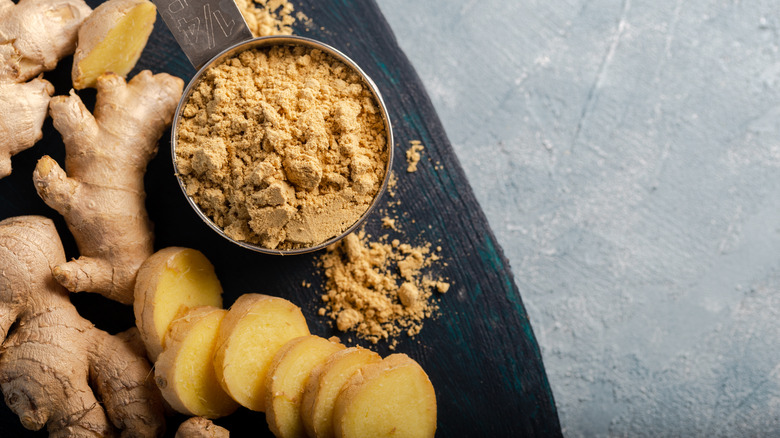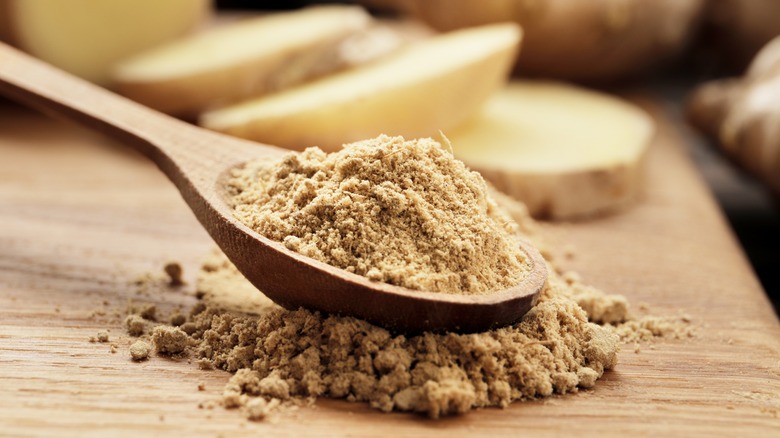The Unexpected Effect Ginger Has On Your Blood Pressure
Ginger is a flowering plant whose root has been used for cooking and medicinal purposes for thousands of years (via Everyday Health). Native to Southeast Asia, ginger has had a long history of use and cultivation all over the world, including in countries like China, Greece, Rome, and a number of other areas in the Middle East. In fact, ginger was once used in traditional medicine to relieve a variety of ailments, including muscle pain, menstrual cramps, stomach pain, and the common cold. It was even once used to help treat skin burns.
Nowadays, ginger is commonly used as an herb and spice to flavor foods and beverages However, it can also be used to help soothe an upset stomach. As a result, ginger is now widely available in grocery stores and farmers markets and can be found fresh, dried, or powdered. It can also be taken as a supplement in capsule or tablet form.
Ginger may lower blood pressure
While ginger has been linked to a number of important health benefits, like nausea and indigestion, it may also help lower blood pressure (via Healthline). Although further research is still needed, human and animals studies published in Phytotherapy Research and the Journal of Cardiovascular Pharmacology found that ginger consumption appears to help reduce blood pressure by acting as a calcium channel blocker and ACE inhibitor, both which are used in blood pressure medications. Another study published in Nutrition found that participants who consumed two to four grams of ginger per day were less likely to develop high blood pressure, per Healthline.
However, this doesn't mean that you should trade in your blood pressure medication for ginger supplements. You should talk to your doctor or health care provider before taking ginger or any other herbs and spices to lower your blood pressure, and, even then, you would still need to manage your blood pressure with a combination of medication and dietary and lifestyle changes.


